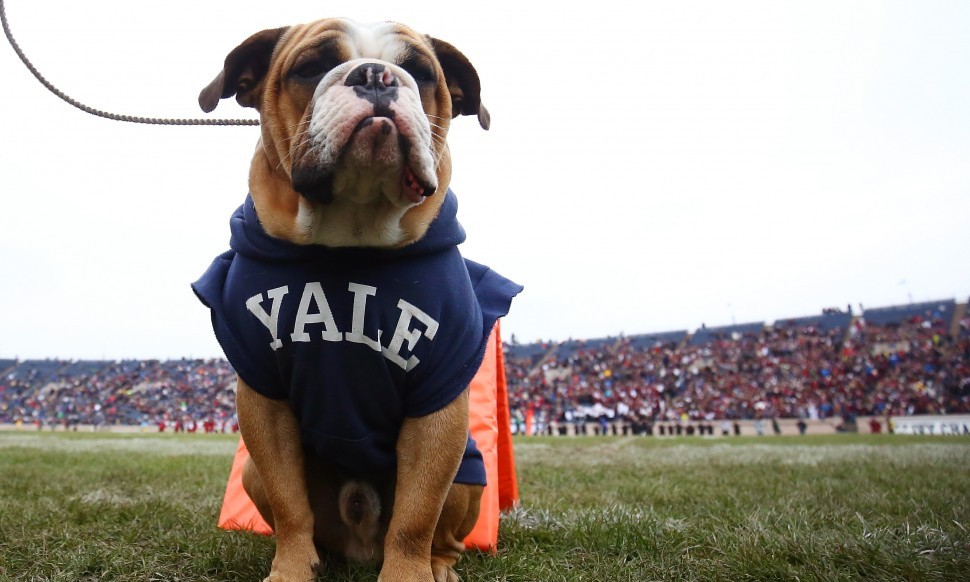
The world of college sports, extremely rich people, and shady business practices intersected in a magnificent way on Tuesday as federal prosecutors announced charges filed against 50 individuals in a massive college entrance fraud ring.
Actresses Lori Loughlin and Felicity Huffman were involved in the scheme, with Loughlin attempting to pay $500,000 to get her daughters into USC by pretending they were recruits for the crew team and Huffman paid $15,000 to help her daughter cheat on the SAT.
On a sport specific level, no one made out better in this scheme (until they got caught) than former Yale women’s soccer coach Rudy Meredith, who just so happened to resign in November of last year. According to documents released on Tuesday, Meredith made over $1.6 million as part of a scheme to designate non-soccer players as recruits to get them priority in admissions.
Meredith coordinated with William Rick Singer, who operated a for-profit college counseling service that, the feds found, regularly paid bribes to college coaches either directly or through donations to the program to create fake recruiting profiles. Because colleges afford priority for athletic recruits, this is a way to move applicants to the front of the line, even if their resume is not as strong as other applicants (or simply in a grey area of possibly being accepted).
The documents on Yale, which can be read in full here, detail the massive amounts of money Meredith received to pretend students were soccer recruits — including one student whose profile detailed her art background and was doctored to change information to state she played soccer.
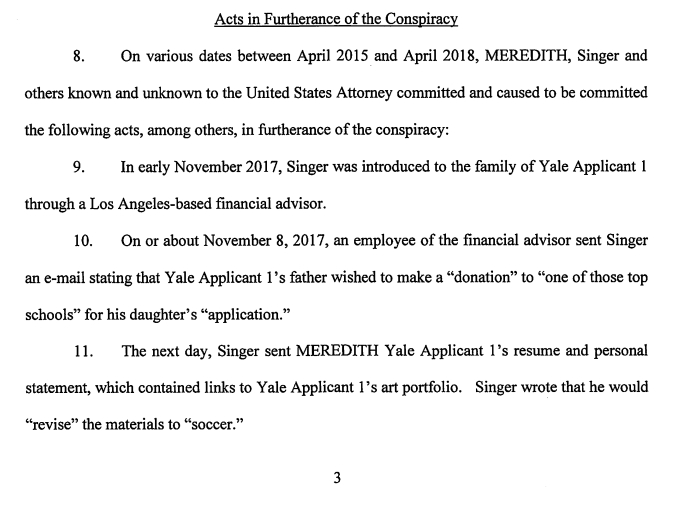
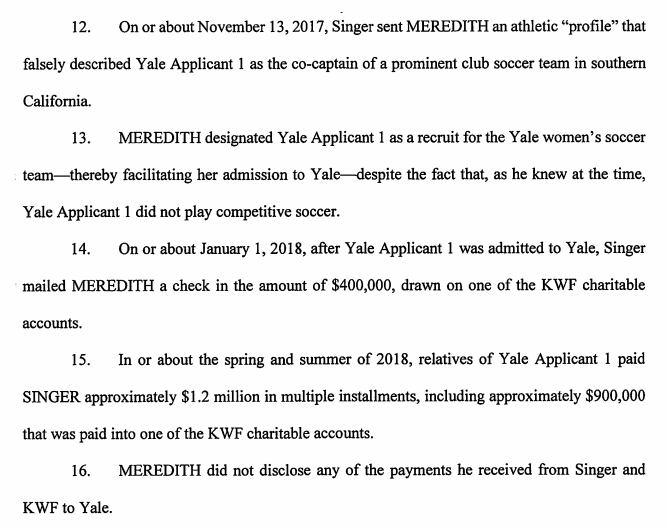
Meredith was far from alone in this scheme, though. Stanford’s sailing program also received $270,000 in the scheme, and the funniest part of it is, the two payments that totaled that amount were for students that either never applied to Stanford or chose to go elsewhere.
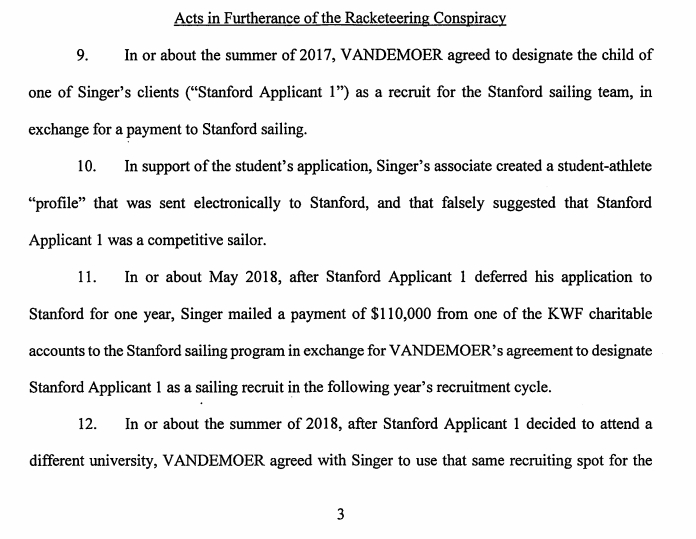
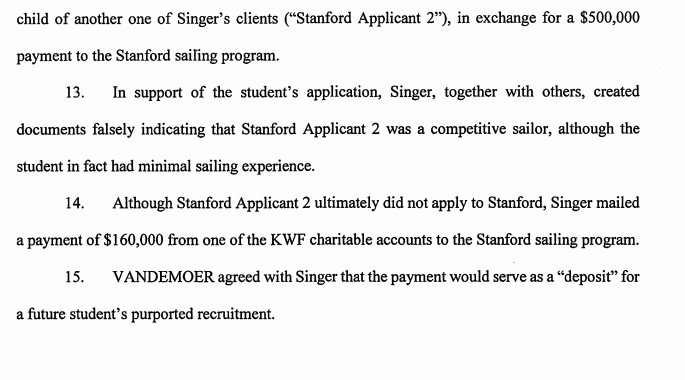
The many college programs involved in the scheme were smaller athletic programs, like crew, sailing, soccer, tennis, volleyball, etc. and not the “revenue” sports like basketball or football. The ease with which the Justice Department was able to trace back the paper trail of payments offers a good reason why. Major college programs are, typically, much better at funneling money to recruits through bag men — although college hoops programs have been sloppy recently and gotten caught.






